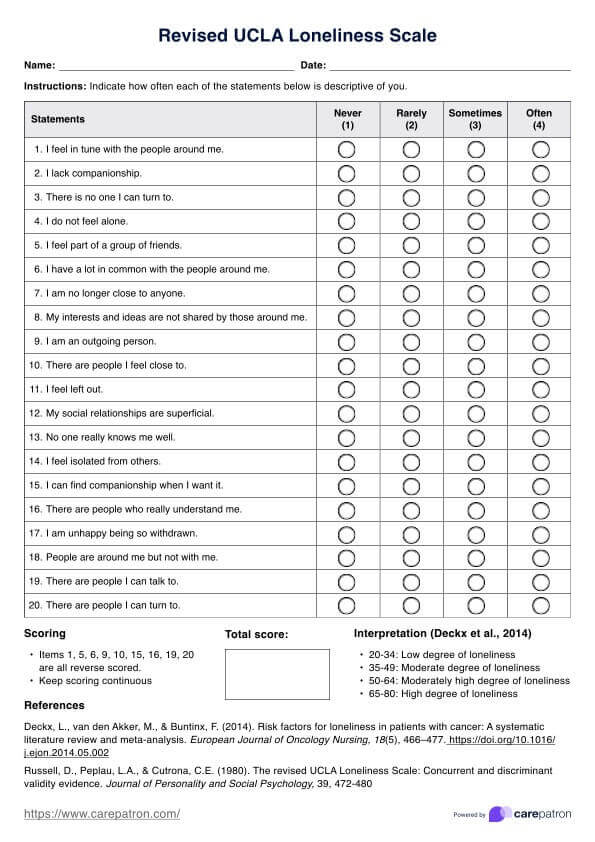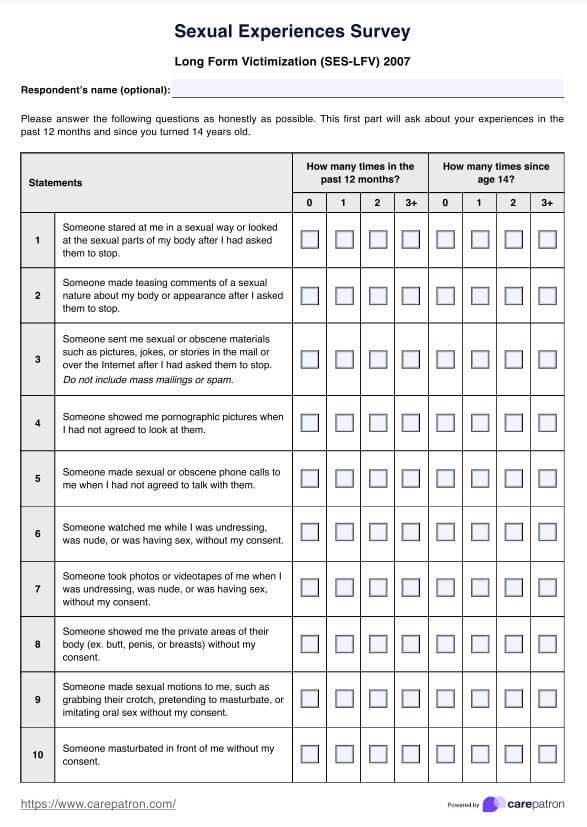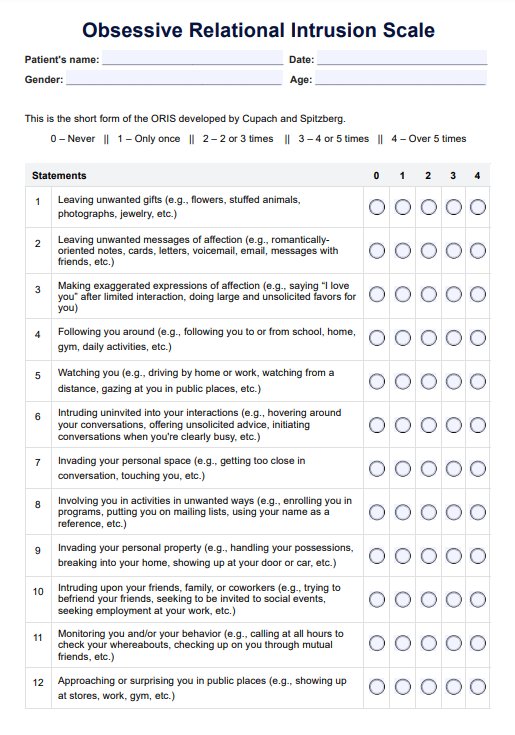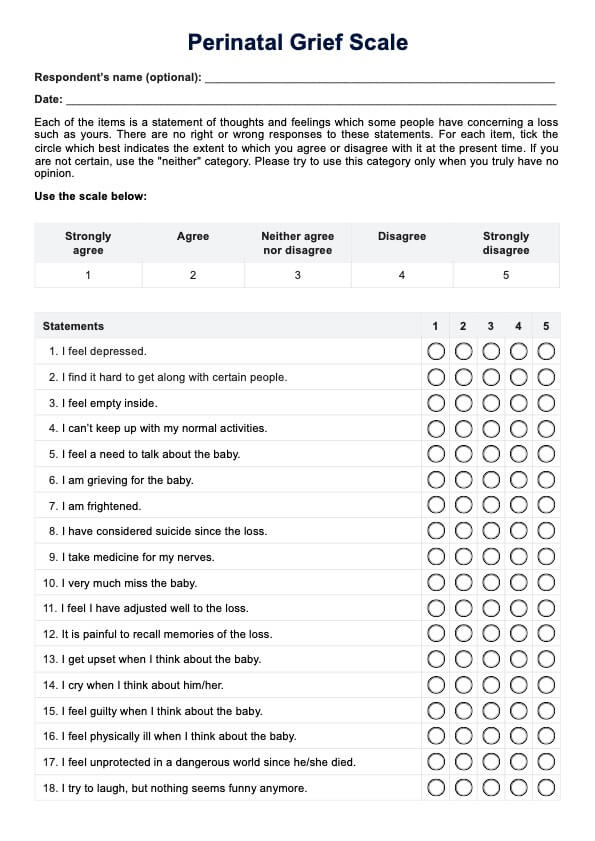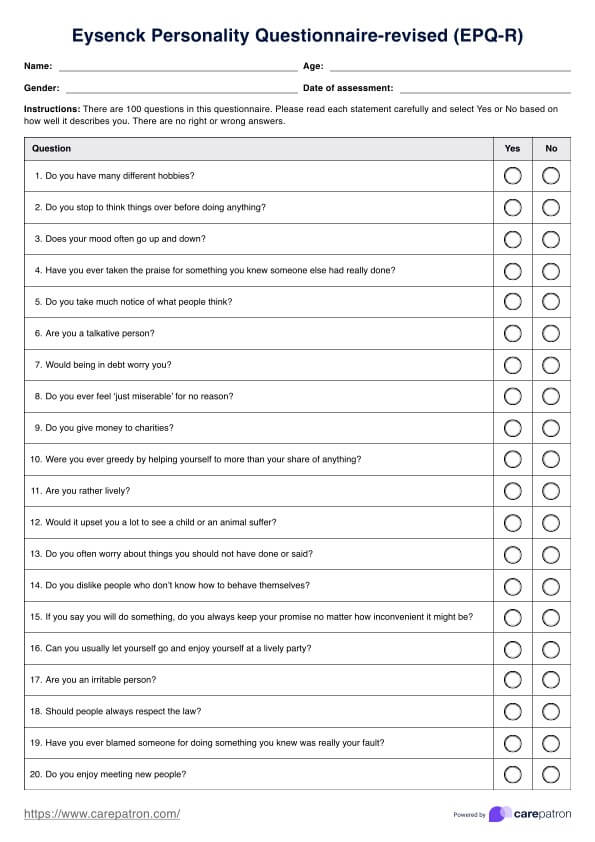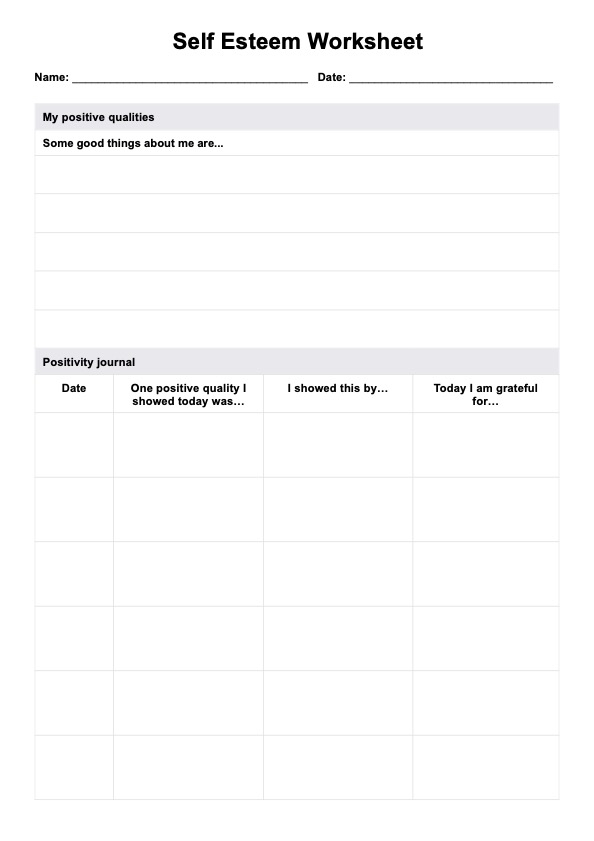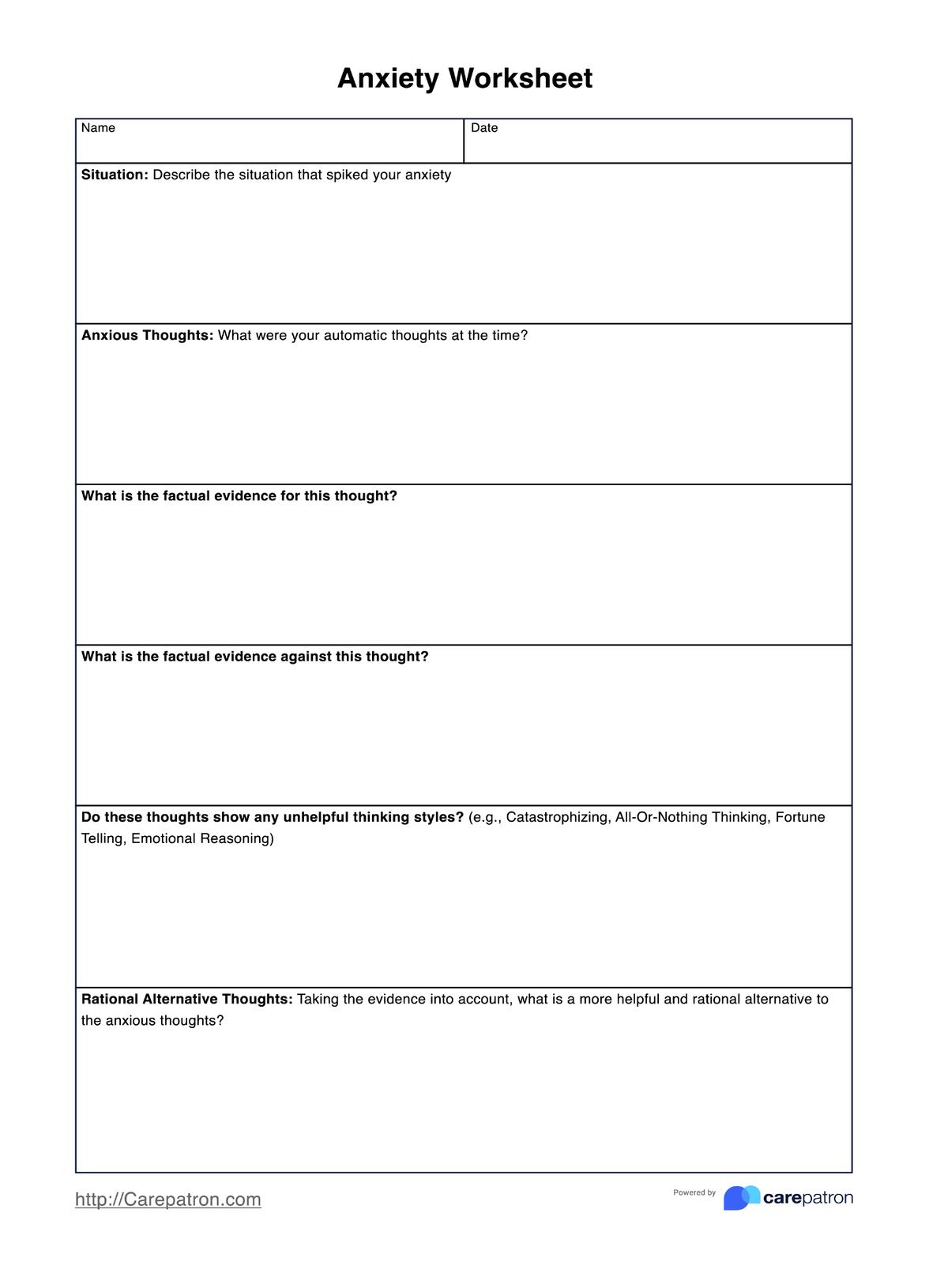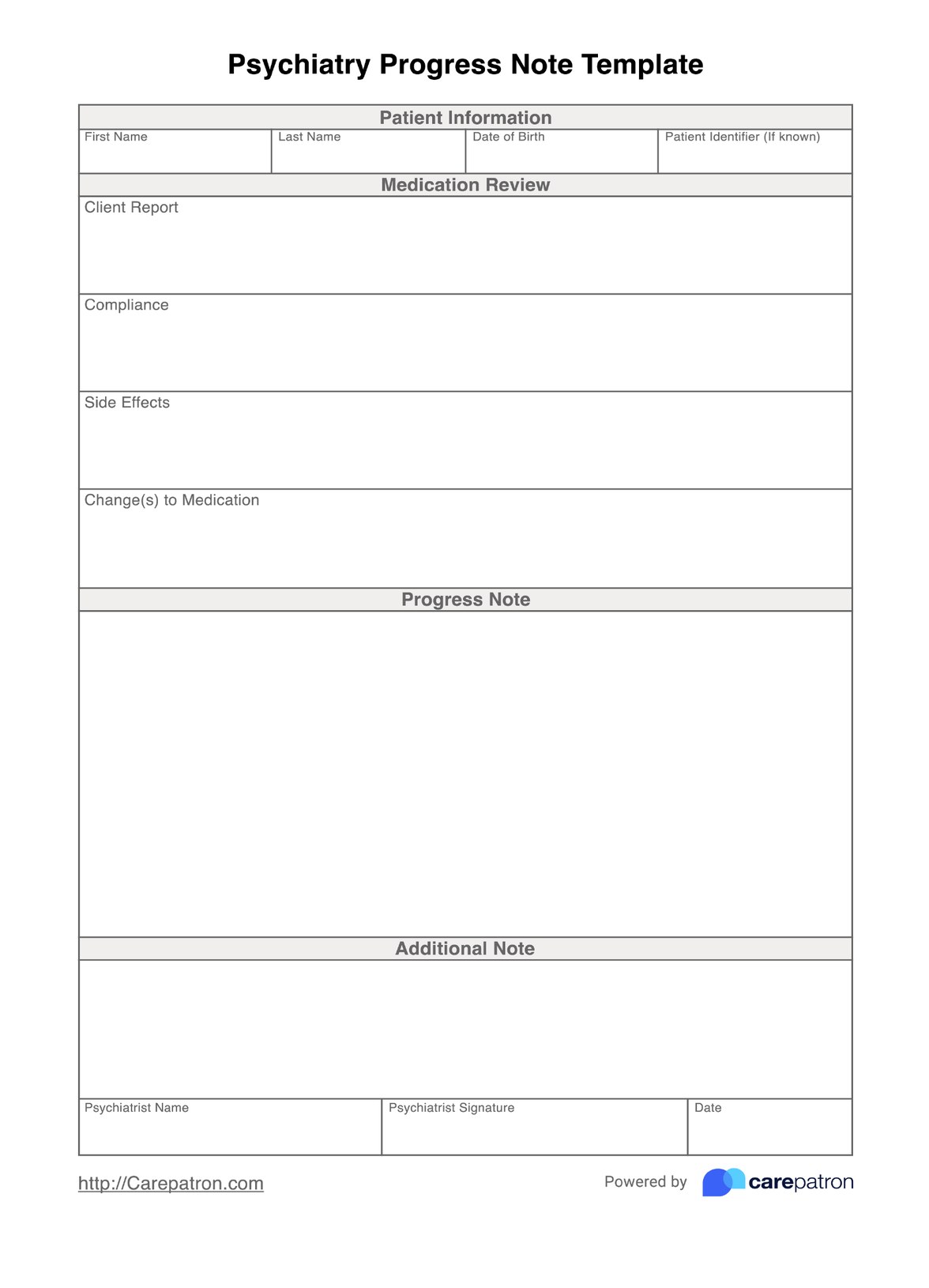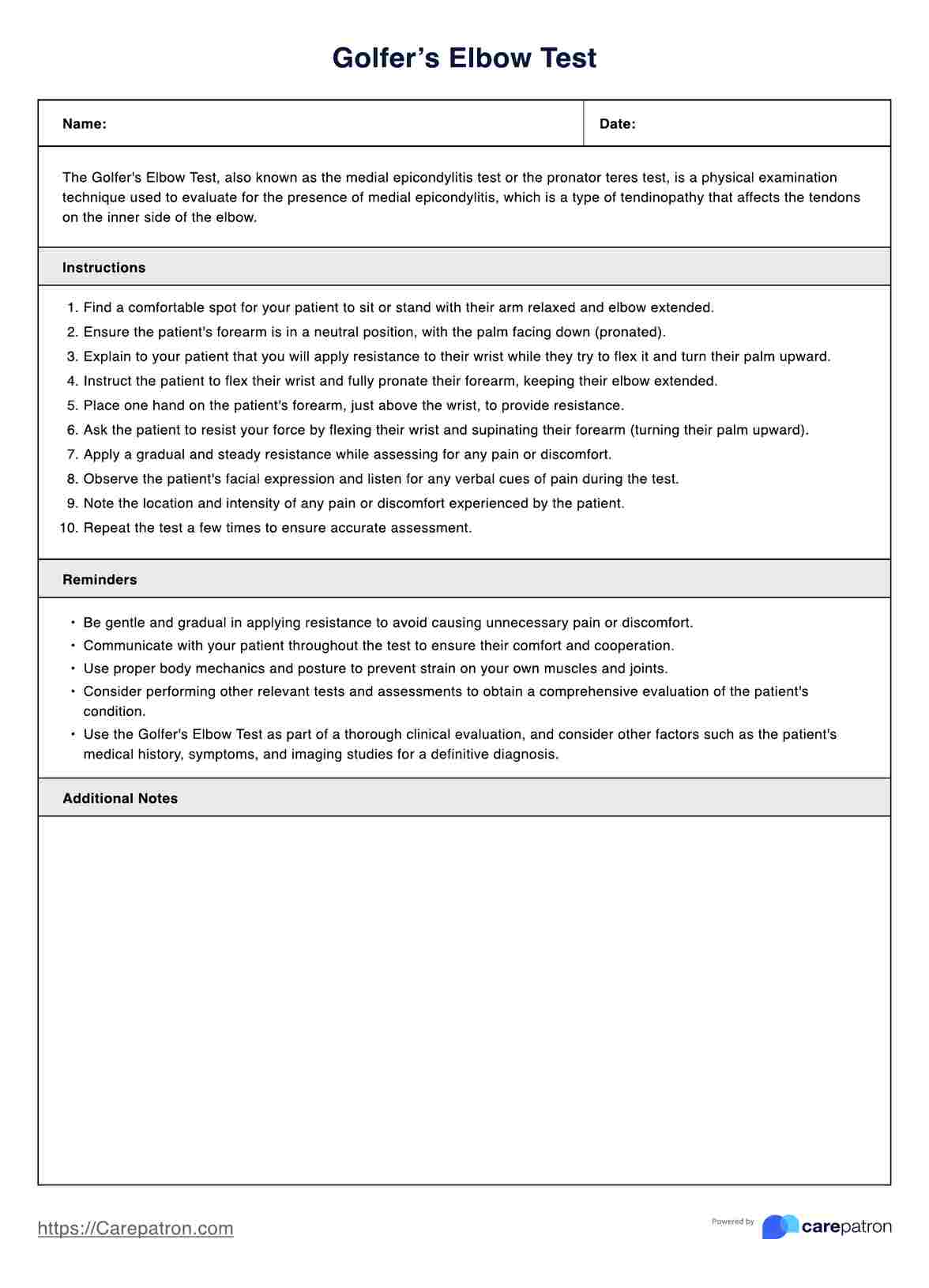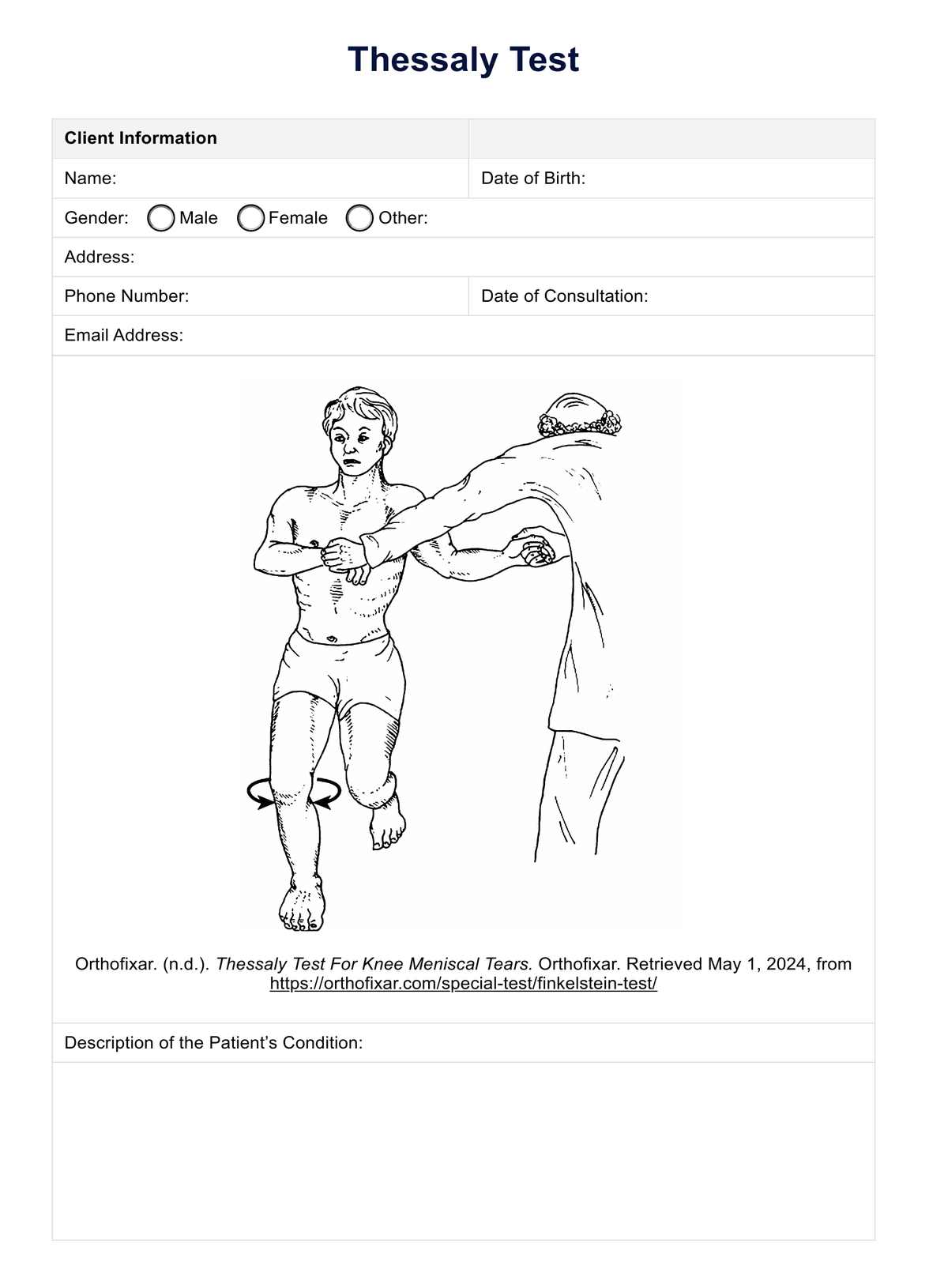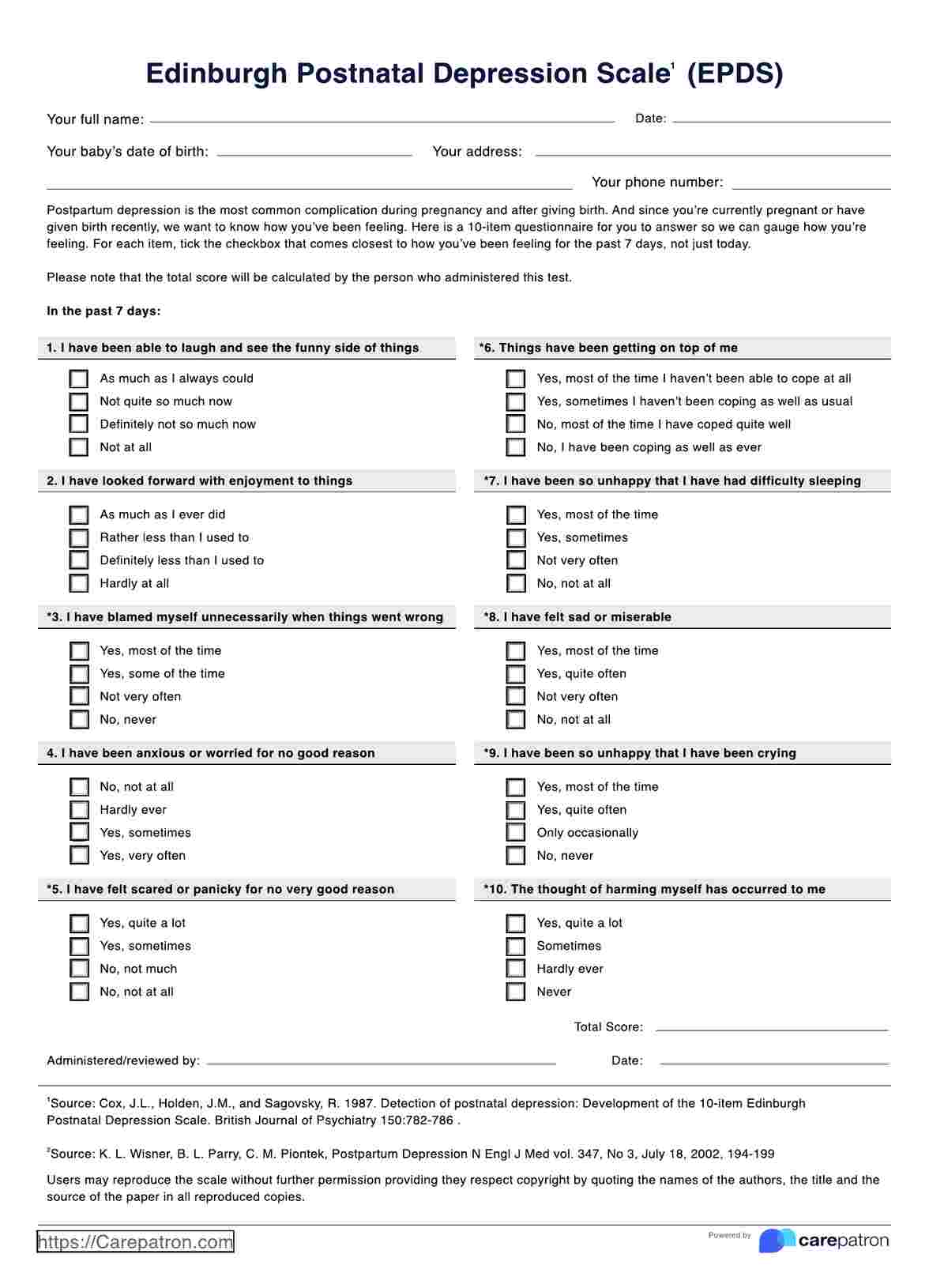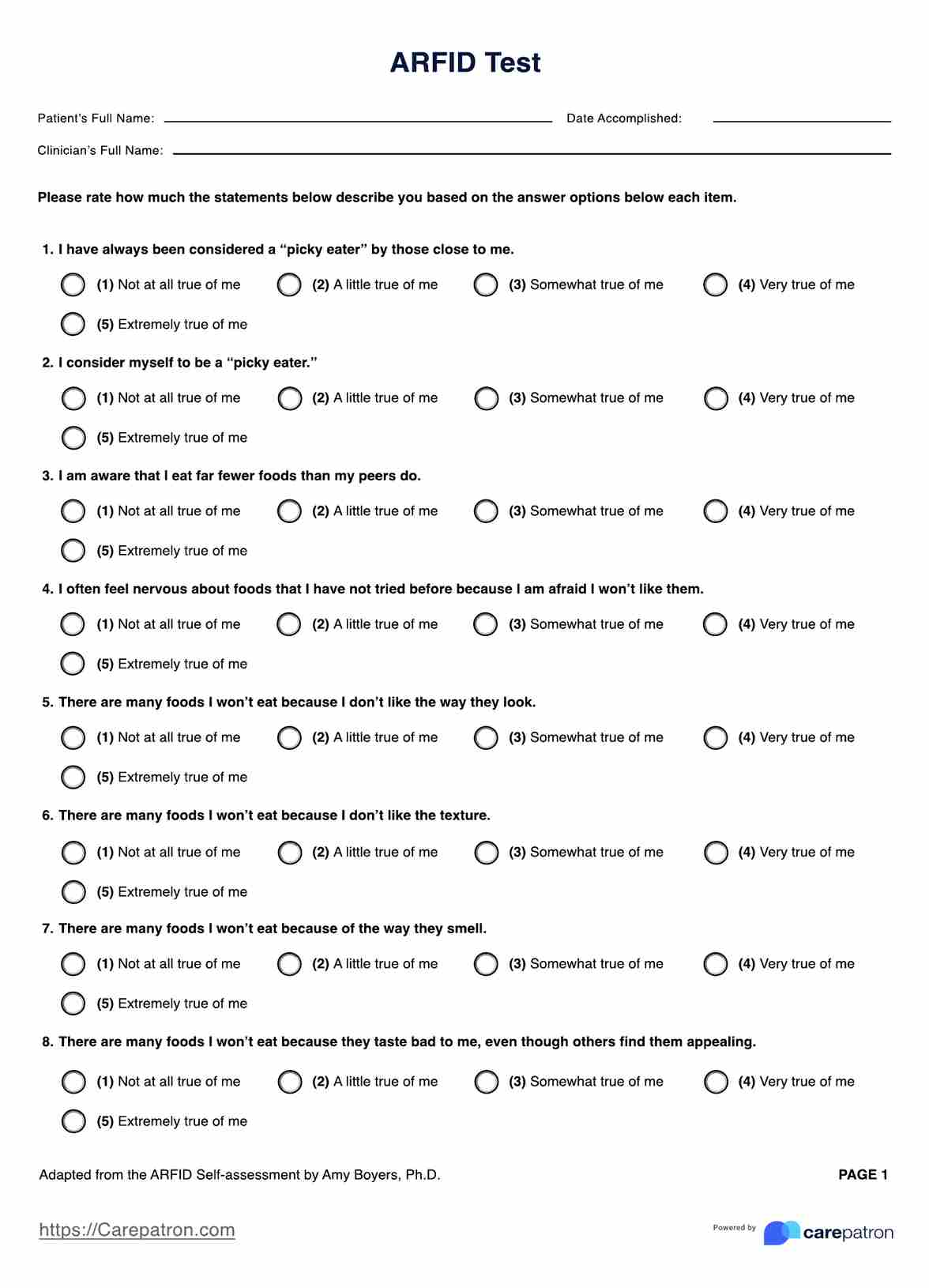Center for Epidemiologic Studies Depression Scale (CES-D)
Issue the Center of Epidemiologic Studies Depressions Scale (CES-D) to your client to assess the severity of their depression and create a care plan accordingly.


What is the Center for Epidemiologic Studies Depression Scale (CES-D)?
The (CES-D) is a self-report scale designed by L.S. Radloff in 1977. It was created to assess the level of depression in people by attempting to measure depressive symptoms.
This depression scale comes in the form of a twenty-item list that asks if a person has experienced symptoms often associated with depression, such as feeling afraid, crying a lot, having restless sleep, feeling lonely, losing appetite, and more.
Center for Epidemiologic Studies Depression Scale (CES-D) Template
Center for Epidemiologic Studies Depression Scale (CES-D) Example
How to use the Center for Epidemiologic Studies Depression Scale (CES-D)
Have your client answer the depression scale!
On the part of the psychologist or adjacent healthcare practitioner, they simply need to issue this to their patient/client.
The client needs to rate themselves based on the following items:
- I was bothered by things that usually don’t bother me.
- I did not feel like eating; my appetite was poor.
- I felt that I could not shake off the blues even with help from my family or friends.
- I felt I was just as good as other people.
- I had trouble keeping my mind on what I was doing.
- I felt depressed.
- I felt like everything I did was an effort.
- I felt hopeful about the future.
- I thought my life had been a failure.
- I felt fearful.
- My sleep was restless.
- I was happy.
- I talked less than usual.
- I felt lonely.
- People were unfriendly.
- I enjoyed life.
- I had crying spells.
- I felt sad.
- I felt that people disliked me.
- I could not get going.
To rate themselves, they simply need to tick any one of the following per item based on the past week:
- Rarely or none of the time (less than 1 day)
- Some or a little of the time (1-2 days)
- Occasionally or a moderate amount of the time (3-4 days)
- Most or all of the time (5-7 days)
Tally the scores!
Once your patient/client hands you a fully-accomplished copy of the depression scale, it’s time to tally the scores. Make sure to keep in mind this scoring scheme:

The score is the sum of all items, and the maximum score is 60. If they score 16 points or more, it’s safe to consider them depressed.
Work on a care plan.
Once you have tallied their scores, it’s time for you to work on creating a plan best suited for them, especially if they scored 16 or higher.
When does one typically use the Center for Epidemiologic Studies Depression Scale (CES-D)?
When you’re at the point during your sessions with your client where you need to gauge the level of their depression properly, you should issue this scale.
You can have them do it on the spot, or they can take it home. Adjust to your client. Perhaps giving them space and time to complete it might be best. You don’t want to add unnecessary pressure on them, so if they feel like they need to think about themselves more before answering the scale, then best to have them take it home and bring it back for the next sessions.
Who can use this printable Center for Epidemiologic Studies Depression Scale (CES-D)?
The following healthcare practitioners can use the Center for Epidemiologic Studies Depression Scale (CES-D) for their respective practices:
- (Clinical) psychologists
- Psychiatrists
- Psychometricians
- (Mental health) therapists
- Counselors
Their clients will be engaging with the scale the most since they will be rating themselves based on the questions.
Why is this assessment popular and useful to psychologists?
It’s a good way to gauge their patient’s level of depression.
Your patient/client may struggle to articulate themselves when discussing their mental health and depression. By having your client rate themselves through this assessment, you’ll be able to get an idea of how mild or severe their depression is.
The resulting depression scale score will help you create a treatment plan.
The Center for Epidemiologic Studies Depression Scale (CES-D) comes with a designation for scores of 16 and above. If you receive a fully-accomplished depression scale that scored 16 or higher, then it’s safe to say that your patient/client has depression. This should prompt you to make a treatment plan, and you can tailor-fit it for your client based on the items that they’ve rated.
It’ll help you monitor their level of depression over time.
In the event that your client scored high initially and you created a plan where they have to attend sessions with you for an extended period of time, reissuing the Center for Epidemiologic Studies Depression Scale (CES-D) every now and then would be great because you can use it to check if they’re getting better or not.

What are the benefits of using the Center for Epidemiologic Studies Depression Scale (CES-D)?
It’ll also help you monitor your care plan for your patient.
Speaking of monitoring your patients by reissuing this depression scale from time to time, reissuing the scale might also benefit you, in the sense that you’ll be able to see if your care plan is actually working or if it needs some tweaking here and there!
The scale can help patients reflect on themselves and even motivate them.
Aside from being helpful to counselors, therapists, and psychologists, the Center for Epidemiologic Studies Depression Scale (CES-D) may also be beneficial for patients.
The scoring system gives them a semblance of objectivity and can help frame where they’re at, mentally. In the event that:
- The client scored high initially
- They’re currently undergoing a treatment plan with you
- And the treatment plan is working
They can see how far they’ve come, and if the treatment plan comes with them having to do something on their part, they might feel more motivated and inspired to become better.
Commonly asked questions
It depends because some are self-assessments. Sometimes, psychologists will be observing and evaluate their patients. Based on those, the answers or ratings are subjective, but there are sometimes score ranges that give a semblance of objectivity, just so the psychologist can determine the courses of action they can possibly take to help their clients.
In the case of the Center for Epidemiologic Studies Depression Scale (CES-D), a score of 16 or higher means that your patient is depressed. The higher the score, the more severe their depression is likely to be.
At the start of your program with your patient is often the best time to use this for the first time because you want to gauge the severity of their depression or to see if you need to move forward to have them officially diagnosed.
That depends on you, but it’s best to reuse this scale when treating your patient. Reusing this scale will help you track their progress over time and see whether they’re getting better or not, and whether your care plan is working or needs improvements.
As to when you should reissue this, that’s up to you. Given that this depression scale asks the user to answer based on how they’ve been feeling for the past week, perhaps reissuing this weekly might be best. It’s best to discuss that with your client and see what they’re comfortable with.


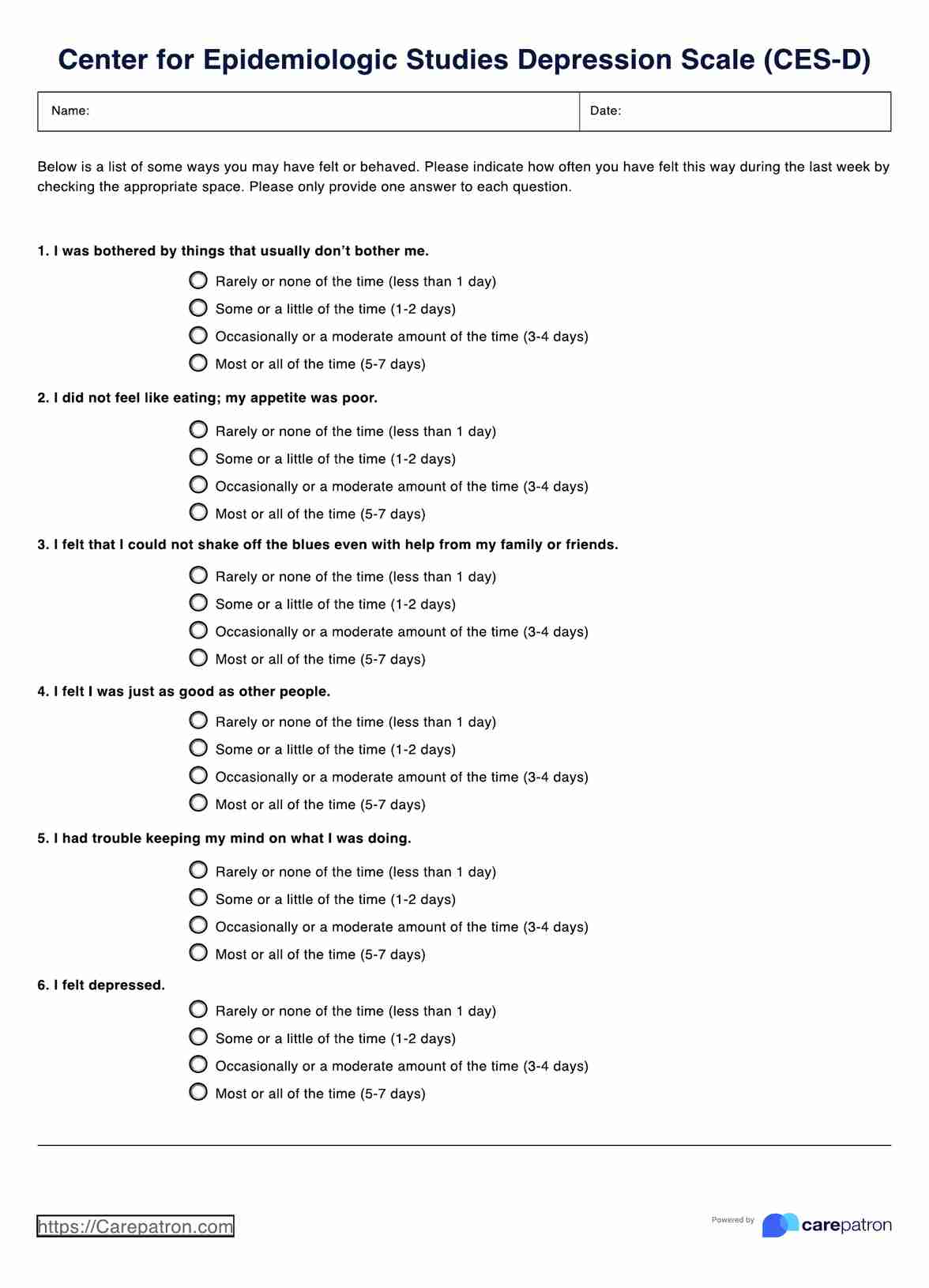
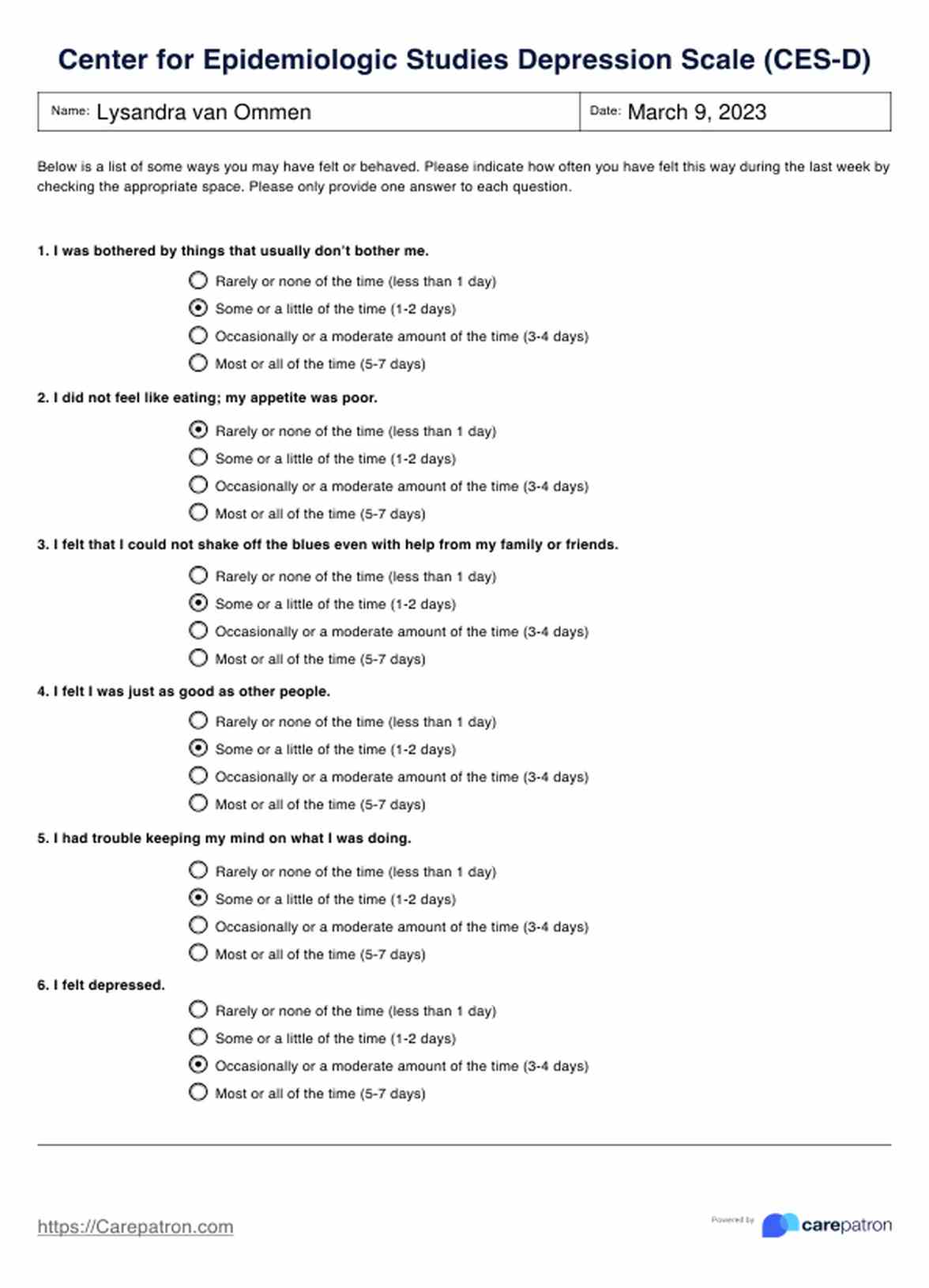

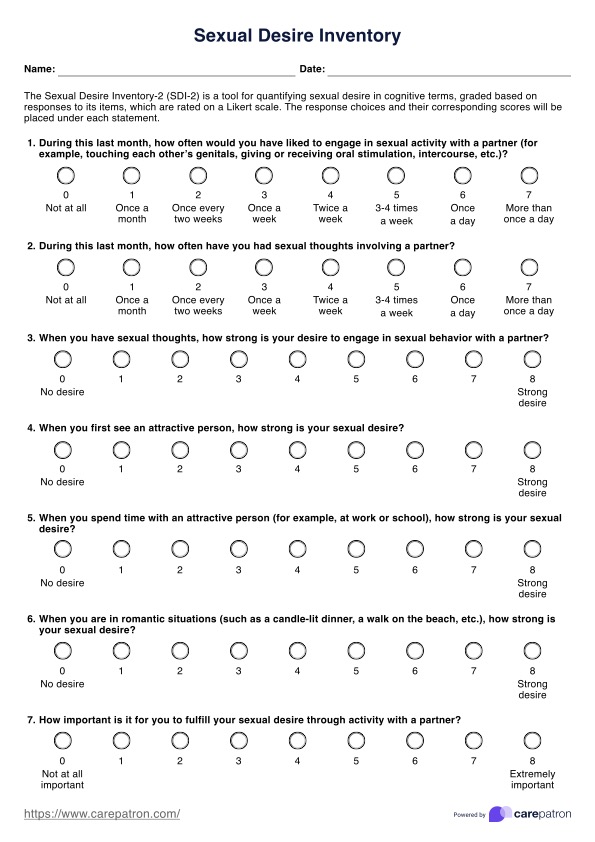
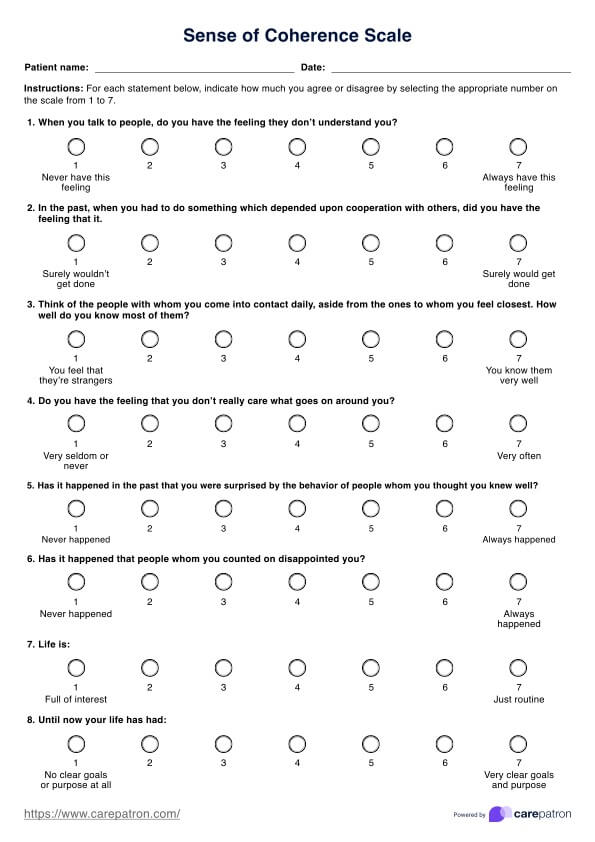










-template.jpg)


















































































